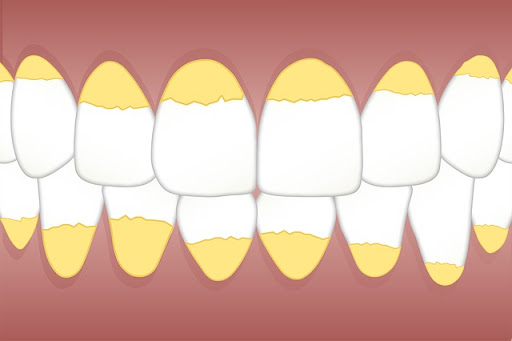
You’re brushing your teeth as part of your regular morning routine and suddenly notice blood in the bathroom sink when you spit! What’s going on? Did you get carried away and brush too vigorously, or is something more sinister?
Gingivitis is the earliest stage of periodontal disease (gum disease). According to the Center for Disease Control (CDC), over 47% of adults over 30 have some periodontal disease. If caught and treated early, your dentist can reverse the effects of gingivitis and prevent it from advancing to periodontal disease.
Unfortunately, symptoms of gingivitis may not appear until it is in its advanced stages. Signs to watch for include:
Periodontal disease is caused by bacteria in the mouth that infects the tissue around the tooth and causes inflammation in the tissue. When that bacteria stays too long, it becomes plaque, which hardens to tartar (calculus). Calculus then builds up and spreads below the gum line, making teeth harder to clean. At this point, only a dental professional can remove the tartar and stop the progression of periodontal disease.
According to the American Dental Association, gingivitis can be prevented by good oral hygiene and regular dental cleanings.
If you experience symptoms, they won’t go away without treatment. See your dentist at the first sign of gingivitis and follow up with their recommendations for home care. If left untreated, gingivitis can lead to periodontal disease and eventually result in tooth and bone loss.
Your dentist may recommend a deep cleaning to eliminate the buildup of plaque and calculus that causes periodontal disease. This treatment may require anesthesia, over-the-counter pain relievers such as Tylenol or Ibuprofen, and a prescribed antibiotic to help combat infection. You may experience some mild discomfort for the first few days after treatment, but this should go away within a short period. If it doesn’t, or if you develop sores or boils, contact Dental Care Center immediately.